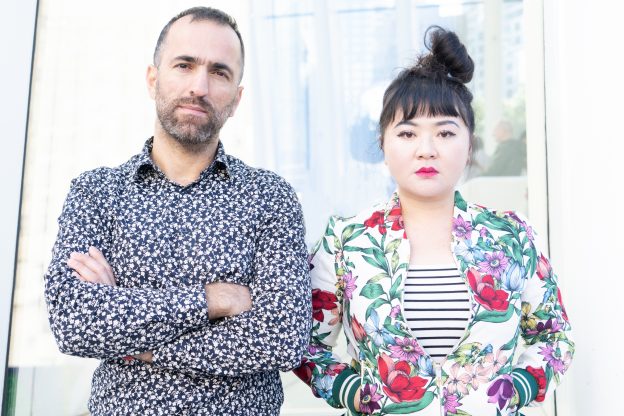Where We Lost Our Shadows
Thursday, April 11, 2018 at 7:30pm
Zankel Hall at Carnegie Hall
57th St. and 7th Ave., NYC
| ABOUT
ACO presents the NY premiere of Du Yun and Khaled Jarrar’s Where We Lost Our Shadows, a new multidisciplinary work for orchestra, film, and vocalists. Written in response to film captured by Ramallah-based Palestinian visual artist Jarrar, which documents the refugee crisis in Europe, the piece will be performed by ACO with Pakistani Qawwali singer Ali Sethi, singer Helga Davis, and percussionist Shayna Dunkelman alongside Jarrar’s visuals. The concert also includes Gloria Coates‘ Symphony No. 1, “Music on Open Strings,” from 1973, and Morton Feldman‘s 1980 work Turfan Fragments, inspired by a series of fragments of knotted carpets from the third and sixth centuries which were discovered in the Silk Road region. |
TICKETS $43 to $51 CarnegieCharge 212.247.7800 or the Carnegie Hall Box Office |
George Manahan, music director and conductor
Ali Sethi, vocalist
Helga Davis, vocalist
Shayna Dunkelman, percussion
THE WORKS
TURFAN FRAGMENTS (1980)
Even the knotting of oriental rugs gave Feldman musical ideas.
<<keep reading>>
SYMPHONY NO. 1, “MUSIC ON OPEN STRINGS (1973)
Scored for a string orchestra playing entirely on retuned open strings. The work opens with the strings tuned to a minor pentatonic scale (B flat, C, D flat, F, G flat), which are returned to their normal tuning movement by movement.
<<keep reading>>
WHERE WE LOST OUR SHADOWS music by Du Yun, film by Khaled Jarrar
(N.Y. Premiere, co-commissioned by ACO, Carnegie Hall, The Kennedy Center, Southbank Centre, and Cal Performances)
A multidisciplinary work for orchestra, film, and vocalists written in response to film captured by Ramallah-based Palestinian visual artist Khaled Jarrar, which documents the refugee crisis in Europe.
<<keep reading>>
THE COMPOSERS
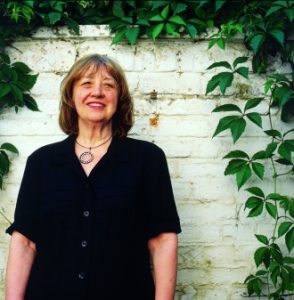 An American composer who has made her career for the most part in Germany, Gloria Coates was born in Wisconsin in 1938. From rural Wisconsin, she headed to New York City to attend Columbia University for undergraduate studies in music; she then earned a master’s degree from the University of Louisiana in 1965. She returned to Columbia for post-graduate work, studying under American composer icons Jack Beeson and Otto Luening, and then moved to Salzburg to take lessons from Alexander Tcherepnin at the Mozarteum there. She established a second residency in Munich in 1969. Coates has been instrumental in bringing American concert music to Germany; the reverse has been far more common over the centuries and Coates is among those who feel it is time to return the favor. She organized and developed the German-American Contemporary Music Series concerts in Munich in the early 1970s and, as an influential member of the International League of Women Composers, has helped bring American women composers in particular to a wider European audience.
An American composer who has made her career for the most part in Germany, Gloria Coates was born in Wisconsin in 1938. From rural Wisconsin, she headed to New York City to attend Columbia University for undergraduate studies in music; she then earned a master’s degree from the University of Louisiana in 1965. She returned to Columbia for post-graduate work, studying under American composer icons Jack Beeson and Otto Luening, and then moved to Salzburg to take lessons from Alexander Tcherepnin at the Mozarteum there. She established a second residency in Munich in 1969. Coates has been instrumental in bringing American concert music to Germany; the reverse has been far more common over the centuries and Coates is among those who feel it is time to return the favor. She organized and developed the German-American Contemporary Music Series concerts in Munich in the early 1970s and, as an influential member of the International League of Women Composers, has helped bring American women composers in particular to a wider European audience.
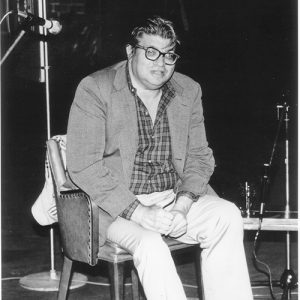 Morton Feldman was born in New York in 1926 and died there in 1987. Just like Cage, a close friend, he was an American composer – an American artist – an American in the true sense of the word. Feldman identified himself by differentiating his views on composition from those of his colleagues in Europe. He was proud to be an American because he was convinced that it enabled him the freedom, unparalleled in Europe, to work unfettered by tradition. And, he was an American also in what may have been a slight inferiority complex in the face of cultural traditions in Europe, something he proudly rejected and secretly admired. Like any true artist, Feldman was endowed with a sensitivity for impressions of a wide variety of sources, literature and painting in particular. His affinity to Samuel Beckett has enriched music literature by a unique music theatre piece, Neither, and two ensemble works. His friendship with abstract impressionist painters gave birth to a range of masterpieces, Rothko Chapel in particular.
Morton Feldman was born in New York in 1926 and died there in 1987. Just like Cage, a close friend, he was an American composer – an American artist – an American in the true sense of the word. Feldman identified himself by differentiating his views on composition from those of his colleagues in Europe. He was proud to be an American because he was convinced that it enabled him the freedom, unparalleled in Europe, to work unfettered by tradition. And, he was an American also in what may have been a slight inferiority complex in the face of cultural traditions in Europe, something he proudly rejected and secretly admired. Like any true artist, Feldman was endowed with a sensitivity for impressions of a wide variety of sources, literature and painting in particular. His affinity to Samuel Beckett has enriched music literature by a unique music theatre piece, Neither, and two ensemble works. His friendship with abstract impressionist painters gave birth to a range of masterpieces, Rothko Chapel in particular.
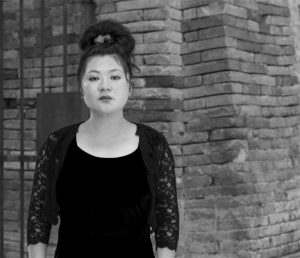
Pulitzer Prize-winner Du Yun, born and raised in Shanghai and currently based in New York City, is a composer, multi-instrumentalist, performance artist, activist, and curator for new music, working at the intersection of orchestral, opera, chamber music, theatre, cabaret, musical, oral tradition, public performances, sound installation, electronics, visual arts, and noise. Hailed by The New York Times as a “leading figure in China’s new generation of composers” and often cited as a key activist in New York’s “new movement in new music,” Du Yun’s music is championed by some of today’s finest performing artists, ensembles, orchestras, and organizations around the world.
Describing her as “protean” and “chameleonic,” NPR voted Du Yun one of 100 composers under 40 in 2011 and The Washington Post named her one of the top 35 female composers in classical music. She is known for her “relentless originality and unflinching social conscience (The New Yorker). In 2017, she won the Pulitzer Prize in Music for her opera, Angel’s Bone, with libretto by Royce Vavrek. She is a 2018 Guggenheim Fellow, and the same year was named one of the 38 Great Immigrants by the Carnegie Foundation. Her work Air Glow, is a 2019 GRAMMY nomination in the category of Best Classical Contemporary Composition.
Du Yun is currently on the composition faculty at the Peabody Institute and distinguished visiting professor at the Shanghai Conservatory of Music. She was a founding member of the International Contemporary Ensemble (ICE), served as the Artistic Director of MATA from 2014-2018, conceived the Pan Asia Sounding Festival, and founder of the FutureTradition Initiative in China. Further information at channelduyun.com
THE PERFORMERS

ALI SETHI, vocalist
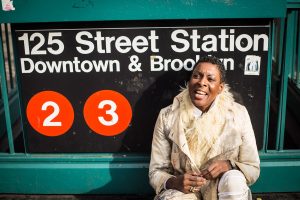
HELGA DAVIS, vocalist
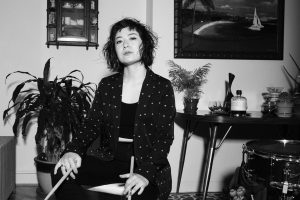
SHAYNA DUNKELMAN, percussion
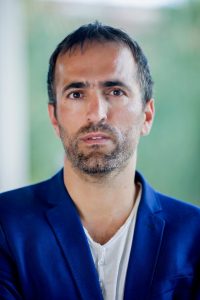
KHALED JARRAR, videographer
Where We Lost Our Shadows is co-commissioned by ACO, Carnegie Hall, The Kennedy Center, Southbank Centre, and Cal Performances. The New York premiere is made possible with lead funding from Morgan Stanley, and additional support from the Virginia B. Toulmin Foundation, Howard and Sarah D. Solomon Foundation, and ACO’s 2019 Commission Club.


